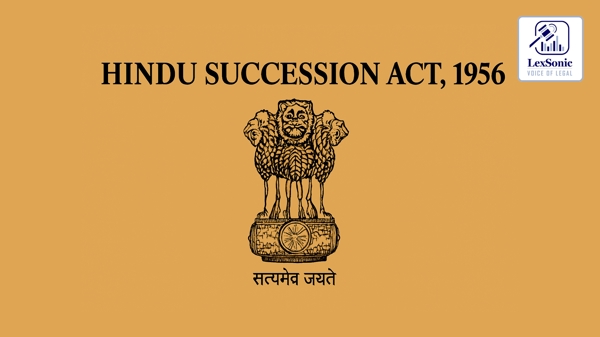Bequest or Life Interest? Court’s Approach to Testamentary Dispositions.
14 November 2024
Hindu Succession Act >> Inheritance
The interpretation of a testamentary document often raises critical legal questions regarding the intention of the testator, particularly when conflicting provisions or unclear terms exist. This case of Sharad Gupta v/s Sudershan Gupta & Another., delves into a significant legal case where the Delhi High Court addressed the nature of the bequest made in a will and the rights of the beneficiaries, focusing on whether a life interest or absolute ownership was granted to a widow under the will of her late husband.
Background of the Case:
The case at hand involves a dispute over the interpretation of a registered will executed on 15th November 2011 by the late Mr. Ravinder Kumar Gupta. The suit was filed by the plaintiff, his son, seeking a declaration that he was the rightful remainderman of the property, which included the ground floor of a house located at Sri Fort Road, New Delhi, and a servant quarter annexed to it. The plaintiff argued that the will granted his mother, the defendant, only a life interest in the property, with the full ownership vesting in him upon her demise.

The will, as quoted by the plaintiff, stated:
"I hereby GIVE, DEVISE AND Bequeath all my properties, moveable or immovable to my wife, Mrs. Sudershan Gupta absolutely and for ever and after her demise all my only immovable properties shall be owned by my only son, Shri Sharad Gupta and in case my wife predeceases me, my only son Shri Sharad Gupta shall own all my only immovable properties & immovable properties to my daughter Swati Gupta."
Based on this, the plaintiff argued that his mother only had a limited life interest in the property, and upon her death, he would inherit the property absolutely.
Court’s Interpretation of the Will:
Upon examining the will and the arguments of both parties, the court rejected the plaintiff's claim of a life interest being granted to the defendant. The court found that the language used in the will did not suggest any limitation on the defendant’s rights to the property. The testator's use of terms like "absolutely" and "for ever" indicated an absolute bequest to the wife, leaving no room for restricting her ownership rights.
The court noted that the testator had explicitly granted the property to his wife without any limitations on her ability to use or dispose of it. There were no provisions in the will that barred her from selling, transferring, or otherwise dealing with the property. The testator’s intent, as discerned from the will’s wording, was to grant the defendant full, unqualified ownership during her lifetime, after which the property would devolve upon the plaintiff and his sister.
Relevant Legal Principles:
The case also referred to Section 14(2) of the Hindu Succession Act, 1956, which deals with the restriction of certain property rights held by a woman in cases of a life interest. However, the court found that since the testator's will did not impose any restrictions on the defendant’s rights, the provision of Section 14(2) did not apply in this case.
Additionally, the judgment referred to several key precedents in Indian law. In Madhuri Ghosh v. Debobroto Dutta (2016), the Supreme Court had held that an absolute bequest prevails over a subsequent, contradictory clause in the same will. This principle was applied in the case at hand to conclude that the earlier grant of absolute ownership to the defendant was binding, and any subsequent clauses regarding the property devolving to the plaintiff after the defendant’s death did not limit her rights during her lifetime.
Court’s Conclusion:
The court ultimately ruled that the defendant held absolute ownership over the property and was free to deal with it as she saw fit, without any limitations. The plaintiff’s contention that the defendant only had a life interest was deemed incorrect, as the will clearly indicated an absolute bequest.
As a result, the plaintiff’s suit for a declaration of title and injunction against the defendants was dismissed under Order VII Rule 11(a) of the Civil Procedure Code, which allows for the rejection of a suit if no valid cause of action exists. The court also dismissed the plaintiff’s applications seeking interim relief.
Implications for Will Interpretation:
This case highlights the importance of carefully interpreting the language of a will to understand the testator's intentions. Courts will often prioritize the explicit terms used in the will, and any claims of limitations or restrictions must be supported by clear and unambiguous language. Where there is no such limitation, the court is likely to uphold an absolute bequest, especially if it is explicitly stated in the will.
In the context of family disputes over inheritance, this case serves as a reminder that the construction of wills must reflect the testator’s true intentions, as expressed in the document, and that courts will be reluctant to impose limitations where none are clearly stated.
Conclusion:
In sum, the Delhi High Court's judgment reaffirms a well-established legal principle that in the absence of any restrictions, an absolute bequest grants full ownership to the beneficiary. The case also illustrates how courts interpret testamentary documents based on their natural and ordinary meaning, reinforcing the need for clear language in will drafting to avoid legal disputes among heirs.
Section 14, Hindu Succession Act - 1956
